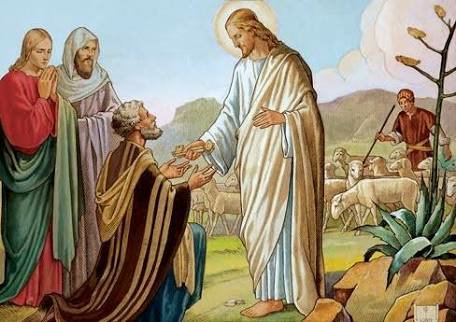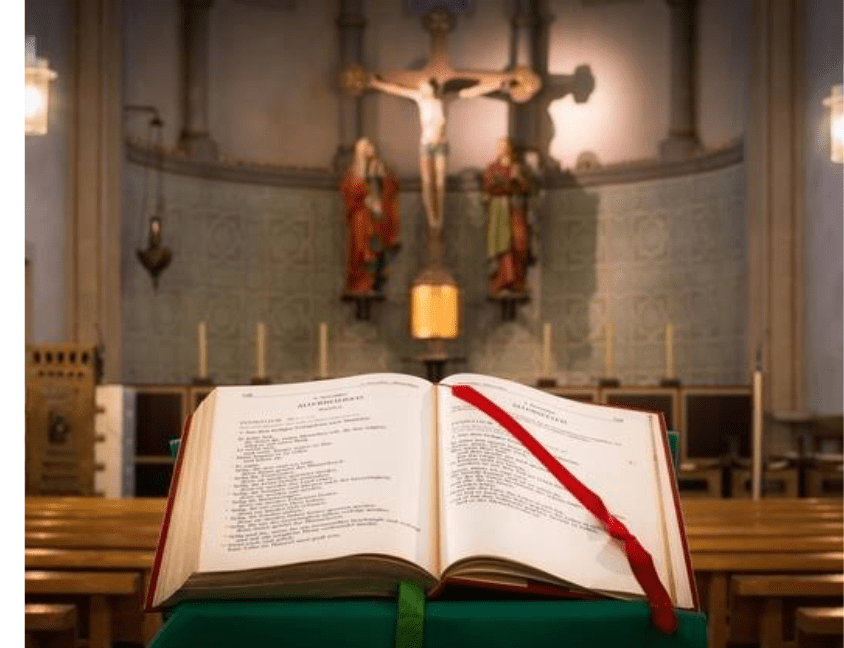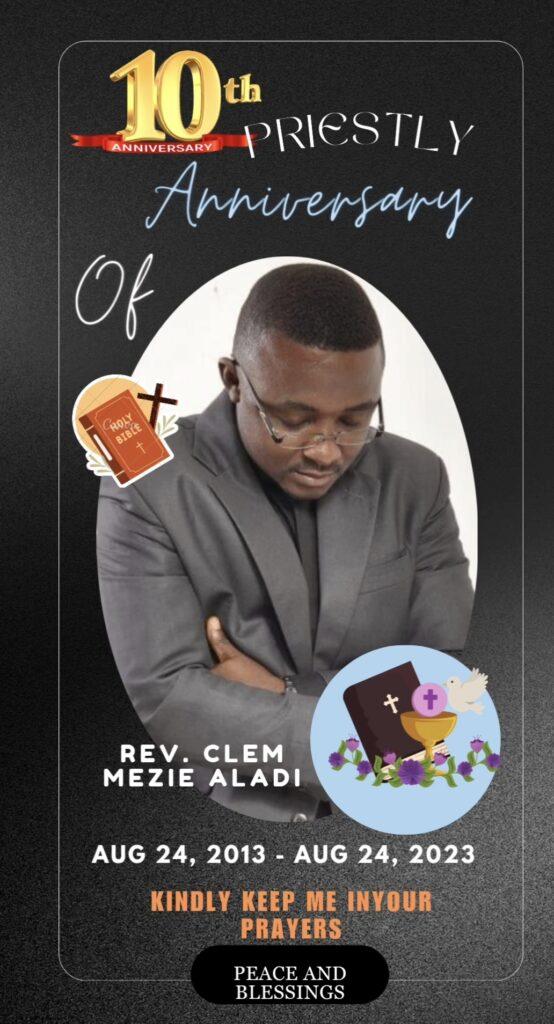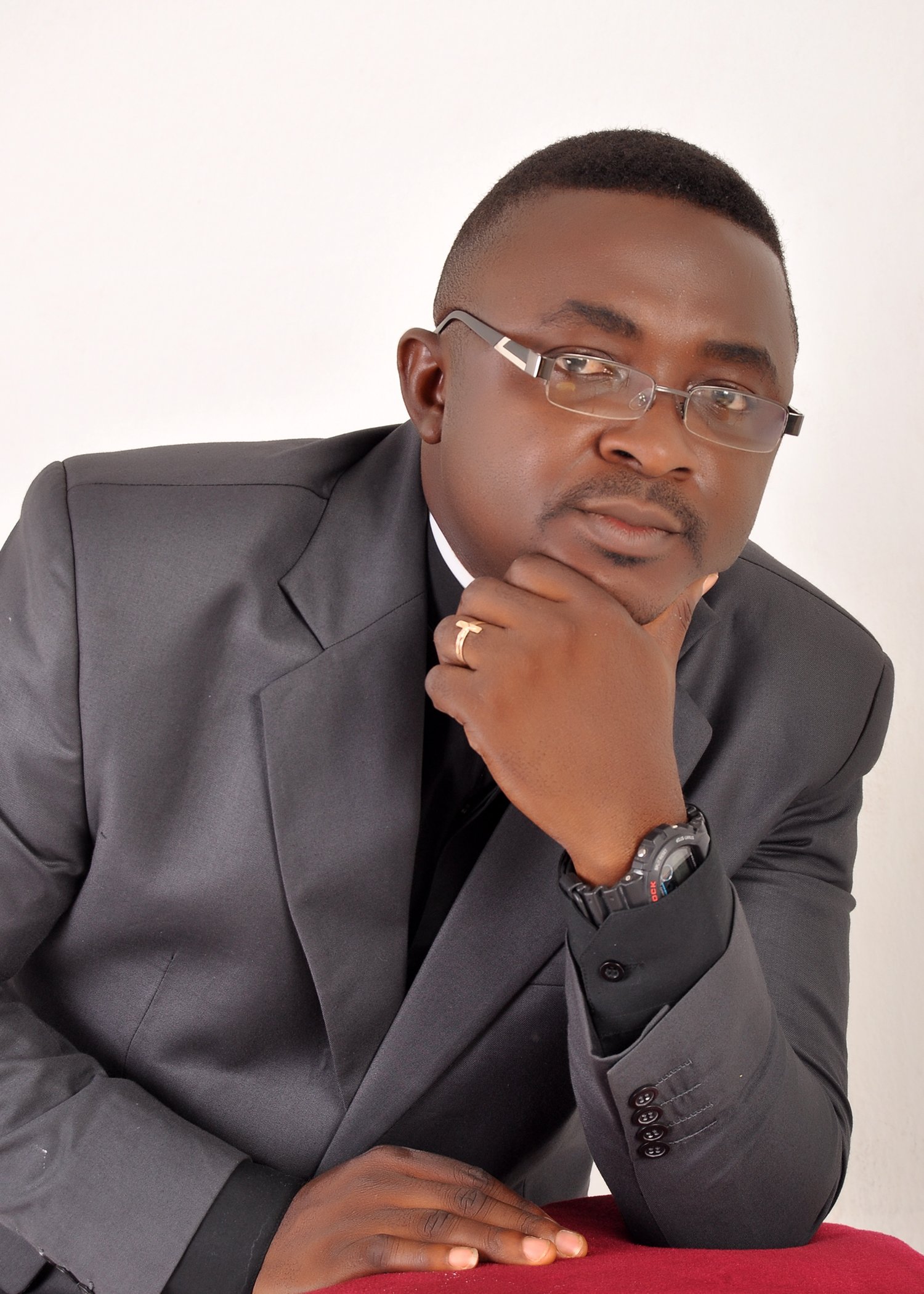
Homily For The 21st Sunday In The Ordinary Time,Year A. August 27, 2023.
“Grant me, O Lord my God, a mind to know you, a heart to seek you, wisdom to find you, conduct pleasing to you, faithful perseverance in waiting for you, and a hope of finally embracing you.” –St. Thomas Aquinas

Sunday Readings
My Dearest Friends,
Welcome to another moment of encounter and deepening of our knowledge of who Christ is. Inspired by the Holy Spirit who enlightens us, we grow in our knowledge of God through God’s divinely inspired word.
On this 21st Sunday, the readings call us to examine and ask ourselves a very personal and critical question WHO IS JESUS CHRIST TO ME? WHAT KIND OF RELATIONSHIP DO I HAVE WITH HIM? These two questions will lead us to answer the same question Jesus posed to His disciples. Answering these two questions will reveal to us whether our knowledge of Christ is based on public opinion or personal encounters based on Divine Revelation.
At some point in time in our lives, it is always important to ask basic questions about our identity because it links us with our mission. Jesus’ identity as the Christ, which means the anointed one of God or the Messiah, speaks truly of His mission.
Many Are Acquainted But Do Not Know Him
As can be seen in the case of the disciples of Christ, sometimes, people who have been close acquaintances with us, do not understand who we truly are. Many are in a crisis of identity today because they have yet to discover who they are. This often leads to all forms of absurdities in their conduct imitating those they cannot emulate. There are many others who are seriously misunderstood by those around them because they do understand their true identity and mission. Had Jesus not asked His disciples whom they think He is and had Peter not broken the silence guided by the Spirit, there would still be to this day, speculations and contentions about the true identity of Christ. This particular gospel pericope, therefore, lends much credence to Christology and it is a very important track in Catholic Theology.
Public Opinion and Personal Knowledge Borne Out of Personal Encounter
Who do people say the Son of Man is? Public opinion is that people are free to believe whatever they want about Jesus, but Jesus had been carefully preparing His disciples to carry on His work. They had heard His teachings and witnessed His miracles. What they think of Him is critical. In the same vein, what we believe about Christ goes a long way to defining our relationship with Him. There are so many public opinions about Christ in our materialistic world. Some worldly preachers, controlled by flesh and blood, have given us an impression of Jesus Christ that is unbiblical, unchristian, and deceitful. God is often presented from a materialistic standpoint to promote their prosperity gospel. He is mainly projected by them as only a God of miracles, deemphasizing the holiness of life and the bearing of our crosses to follow Him as His disciples. I don’t know what the public has made you believe about Jesus Christ. I don’t know the kind of relationship you have with God. It is clear that people think well of Jesus and have pegged Him as a prophet as the disciples reported, but Jesus is more than a prophet. He is the Christos—the Christ—the Anointed One of God. Those who worship God in the flesh can never come to the full knowledge of Him, as those who worship Him in the Spirit. (cf. John 4:24)
Who Is Jesus to You? From Public Opinion to Personal Response
But who do you say I am? ” He is asking for personal testimony/ relationship in the Spirit: Jesus’ messianic identity and divinity, the mystery hidden from eternity, cannot be truly known by human reason, but only by God’s revelation. (1 Cor. 12:3) Peter confessed the identity of Christ aided by the Holy Spirit. What people or Pastors out there tell you may be different from who Jesus reveals Himself to be to you. Public opinions often do not fully define the identity of a person. Public opinion may be biased and prejudiced. A personal faith encounter guided by the Spirit leads us to a full knowledge of God. Our religious practices should be geared towards developing this divine intimacy because only in it can a soul attain fulfillment and full knowledge of God. Many studied Theology who don’t believe in God. Yes because reading about Jesus Christ in the pages of a book isn’t enough. It could lead to some intellectual knowledge but not to a spiritual conviction and faith in God. St. Bonaventure has this in mind when he says, “If you learn everything except Christ, you learn nothing. If you learn nothing except Christ you learn everything” Peter did not arrive at his insight by intellectual astuteness. God has given Peter this understanding of Jesus. Peter’s insight comes by revelation, not a scientific deduction. His understanding is a gift from God. Do you have this understanding of God?
Peter’s Confession and The Change of Name
Peters’s confession led Jesus to call him The Rock. Peter/rock derives its meaning from the word for rock in Aramaic and Greek (petros/petra). According to some scholars, rock refers not to Peter himself but to the confession of his faith. The true Rock and foundation of the Church is, of course, Christ Himself. (cf. Ps 18:2) The Church rests upon this Rock by Her unchanging faith, Her confession. With this faith as the foundation, the gates of Hades, the powers of death, are powerless against Her.
Authority Received and Exercised in the Truth
By handing Peter the keys, which are a symbol of authority, Christ establishes the primacy of Peter as the head of the Apostles and bestows on Peter His authority to bind and lose others from sin. ‘Keys of the kingdom ‘ clearly implies a special authority given to Peter himself, but never separated from his confession of faith. While Peter was the leader of the disciples and of the early Church, all the apostles were empowered with Christ’s authority. (18:18) This Apostolic authority of Peter is shared in its fullness by the Bishops, with the Priests participating in the priesthood of the Bishops. The Popes in the Catholic Church maintain an unbroken succession in the primacy of Peter throughout the entire Church.
These words, “I will give to you the keys of the Kingdom of Heaven” (v. 19a), have their roots in Isaiah 22:22, the first reading of today. “I will place on (Eliakim’s) shoulder the key of the house of David; he shall open, and no one shall shut; he shall shut, and no one shall open.” Eliakim thus became the steward of the house, responsible for opening the house in the morning, closing it at night, and controlling access to the royal presence. God uses men to impact His blessings and to liberate others from sin. What the Catholic Church does in the sacrament of penance is to be taken seriously. It is a fulfillment of a mandate given by God. The power to bind and lose therefore does not rest on Peter, the Bishops, or the priests but on Christ who has the power to forgive sins. “Confession is an act of honesty and courage – an act of entrusting ourselves, beyond sin, to the mercy of a loving and forgiving God.” –John Paul II
The Church is Established on a Rock of Divine Truth
God established His Church (ecclesia) on the rock of divinely revealed truths. The infallibility of the Pope in matters of faith and morals remains a doctrine of the Catholic Church. It pains me when people think that the Catholic Church is deceiving them with Her teachings. Many have left the Church on account of this. Many indeed left and returned when they discovered the truth after having experienced true deception wherever they had gone. We pray that the Holy Spirit help us to understand these sacred mysteries.
The Church is a living reality that is animated by God. It is the sacrament of Christ, an extension of the person of Christ. It is founded by Christ and belongs to Him. We are all stewards, servants, and children of God with God as the Head and Father.
May God give us the grace to believe in the teachings of the Church and the spiritual insight to confess and experience that divine intimacy with God.

I keep you and your family always in my prayers. ©Clem C. Aladi (2024)


